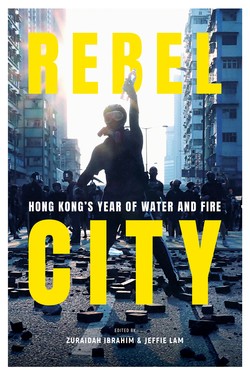Читать книгу Rebel City - South China Morning Post Team - Страница 16
На сайте Литреса книга снята с продажи.
A funeral for Hong Kong
ОглавлениеBy now the anti-bill movement was beginning to look more like a grass-roots effort, with plenty happening online. Young, active members of the online forum LIHKG began dishing out anti-bill statements. Hundreds of petitions criticizing the bill mushroomed online, drawing support from students and alumni of more than half of the city’s 506 secondary schools, Christians, Hongkongers living abroad and housewives.
When the Civil Human Rights Front planned a third protest march for June 9, even pro-establishment politicians expected a large turnout. An estimated 1 million people showed up. Many wore white, as if attending a funeral for the death of Hong Kong.
Such was the gap of understanding between Lam’s government and the people that a source said: “Until the June 9 march, most Exco members were not aware of the existence of massive opposition to the bill.” It exposed the administration’s inability to gauge public sentiment.
A government source said officials did not expect that people unlikely to be affected by the bill would believe that changing the law could put their personal freedoms at risk. “We were outdone by the opposition camp’s public relations campaign. We couldn’t get our messages across effectively, particularly to young people,” the source said.
Regina Ip Lau Suk-yee, leader of the pro-establishment New People’s Party and an Exco member, said it was also plain that the government lacked an effective publicity machine. “Opponents of the bill made many videos and distributed a lot of fliers on public housing estates. A lot of lies were spread, telling new arrivals from the mainland that if the bill was passed, they would be grabbed by mainland law enforcers overnight without seeing their lawyer,” she said. “The government was completely ineffective, and lost control of the narrative.”
She was particularly annoyed that senior officials had failed to respond to criticism of the bill in the international media. Instead, Exco members like herself and others had to step up. Ip asked: “What kind of government declines to speak to the foreign media, given the magnitude of the international attention the bill provoked?”
In hindsight, Ip agreed that the government should have allowed a longer public consultation period and narrowed the scope of the bill to cover murder cases only. “We were persuaded by the chief executive that we wanted to deal with the Taiwan case,” she said, adding that she did not believe she had done anything wrong in giving her support to the bill then. “How to control the narrative, how to mount counterpublicity and whether to put the brakes on the bill were for the chief executive to decide. We did our part by giving advice.”
Ahead of the June 9 march, the government made a second round of amendments to the bill. It further tightened the scope of extraditable crimes and introduced human rights safeguards for ad hoc agreements with jurisdictions that request extradition. Major business groups and political parties welcomed these changes, but critics wanted the safeguards written into the law to make them legally binding.
Business and Professionals Alliance lawmaker Priscilla Leung Meifun, a member of the Basic Law Committee, said: “I called an official and asked the administration to make a further concession by writing the human rights safeguards into the law, but I got cold-shouldered.”
On June 9, the third extradition bill march was a massive procession that went on until late at night. At 11.09pm, before the protest organizers wrapped up, the government issued a statement making it clear that nothing was about to change. It said Legco would resume debating the bill on June 12 as scheduled.
A senior civil servant said he and his peers were taken aback, because that statement just made matters worse. “What the government did went against our common sense. We are not trained that way.” The pro-establishment camp was shocked too. A Beijing-friendly lawmaker said: “I supported the bill, but after reading the statement, I seriously considered not casting my vote. The government’s attitude truly crossed the line.”
Lam’s change of heart came only after protesters besieged the Legco complex on June 12 to prevent lawmakers from entering to begin scrutinizing the bill. Violent clashes broke out, and social media was soon awash with images of bloodied protesters and police officers.
On June 15, a grim-faced Lam announced that the bill would be suspended. She admitted shortcomings in her government, expressed sorrow and regret for causing inconvenience and disputes in society, and promised to be humble, but made no apology.
The next day, an estimated 2 million people thronged the streets, condemning Lam and demanding more than the withdrawal of the extradition bill. Now they also wanted an inquiry into alleged police brutality, an end to referring to the June 12 protest as a riot, amnesty for those arrested during the protest, and universal suffrage. The turnout was a new record for Hong Kong.
Lam issued a written apology on the same day. On June 18, she made a formal apology in person, but rejected all the other demands. Lam then retreated from public view until June 27. She canceled the weekly Exco meeting two weeks in a row, and called off a public forum related to district council elections in November.
Ronny Tong Ka-wah, another of Lam’s advisers, recalled that she teared up during urgent Exco meetings after the two massive protests. “I didn’t take it as a sign of weakness. That showed she had feelings,” he said.
But the old impassive Lam returned after July 1, the day hundreds of black-clad protesters stormed and vandalized the Legco complex. At a 4am press conference, Lam said she was outraged and called on the community to condemn the violence and vandalism. That day marked her second anniversary as city leader.
